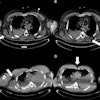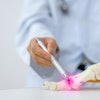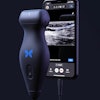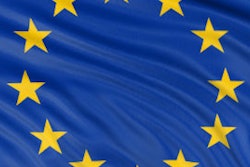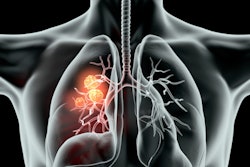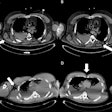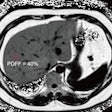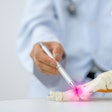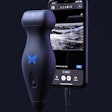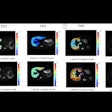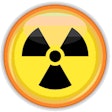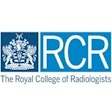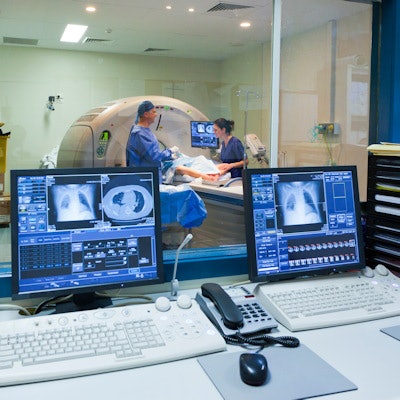
Which countries have the most up-to-date scanners when it comes to CT and MRI? Who's lagging behind? A comprehensive, broad-ranging, and free-to-download report published on 26 June has addressed these and other questions.
The King's Fund, an independent think tank founded in 1897 and involved with work relating to the health system in England, looked specifically at how the U.K. National Health Service compares with healthcare systems in other selected countries. The lead author -- Siva Anandaciva, chief analyst in the policy team -- has devoted a section of the 120-page report to diagnostic technologies.
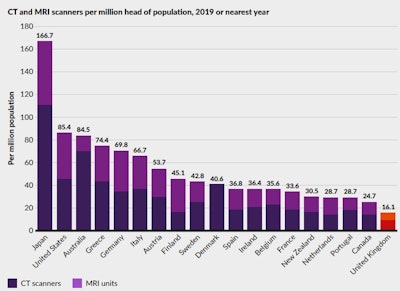 Japan has by far the most CT and MRI scanners in the selected countries, whereas the U.K. has the fewest machines. Equipment outside hospitals is excluded for Portugal, Sweden, and U.K. Only equipment eligible for public reimbursement is included for Australia. Source: OECD, 2023. All figures courtesy of King's Fund.
Japan has by far the most CT and MRI scanners in the selected countries, whereas the U.K. has the fewest machines. Equipment outside hospitals is excluded for Portugal, Sweden, and U.K. Only equipment eligible for public reimbursement is included for Australia. Source: OECD, 2023. All figures courtesy of King's Fund."Compared to our basket of countries, the U.K. has far fewer CT and MRI scanners," he wrote. "However, data for the U.K. on these measures do not fully capture MRI and CT scanners outside hospitals and in the private sector."
As with capital investment overall, there is no "right" level of diagnostic equipment, according to Anandaciva. "The Organization for Economic Cooperation and Development (OECD) notes that too few scanners can lead to longer waiting times or under-diagnosis of health conditions, while too many scanners could lead to overuse of costly equipment for little clinical benefit."
The number of scanners a country has can also reflect historical and wider societal practice, he continued.
"For example, Japan is a clear outlier in having far more scanners per head than other countries, including an MRI scanner based at a gas station in Yamaguchi prefecture. This reflects Japan's large and mature diagnostic manufacturer market and the role of access to diagnostic devices in the competitive market between smaller private hospitals," he wrote.
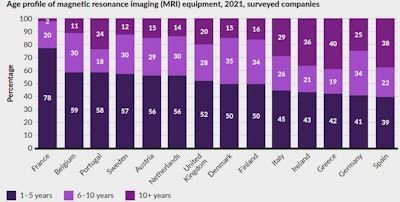 France came out well when looking at the age profile of MRI scanners, whereas Spain performed poorly. Figure based on COCIR's European survey of companies, including Canon Medical Systems, GE, Philips, and Siemens Healthineers. No MRI figures available for Denmark.
France came out well when looking at the age profile of MRI scanners, whereas Spain performed poorly. Figure based on COCIR's European survey of companies, including Canon Medical Systems, GE, Philips, and Siemens Healthineers. No MRI figures available for Denmark.Anandaciva explained that a survey by the European Coordination Committee of the Radiological, Electromedical and Healthcare IT Industry (COCIR) found that the age profile of medical imaging equipment in the U.K. is about average compared with many other selected countries.
"Older medical equipment can often be used safely, but newer technology can offer benefits, including higher-quality images, scans with lower radiation doses, and faster examinations," he noted.
Capital investment in healthcare is low in the U.K. overall and has been associated with rising maintenance problems with NHS buildings and infrastructure, and scanning equipment is no exception to this trend, he added.
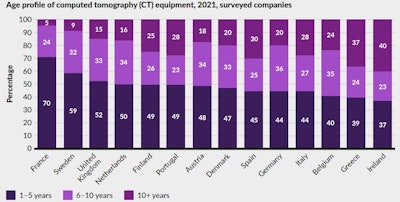 France also has the most modern CT installed base, whereas Greece and Ireland have the most antiquated machines. Based on COCIR's European survey of companies, including Canon Medical Systems, Fujifilm, GE, Philips, and Siemens Healthineers.
France also has the most modern CT installed base, whereas Greece and Ireland have the most antiquated machines. Based on COCIR's European survey of companies, including Canon Medical Systems, Fujifilm, GE, Philips, and Siemens Healthineers.The U.K. government has said it will provide additional funding to replace old diagnostic equipment and develop new one-stop shop diagnostic facilities in local communities. "But the available data suggest that the U.K. has a lot of ground to make up before the number and condition of its medical imaging equipment matches the level of peer countries," Anandaciva pointed out.
The King's Fund report also covers other areas, including health spending, staffing, processes, quality of care, outcomes, and lessons from country experts. You can download a summary and a full copy of the report by going to the King's Fund website.
